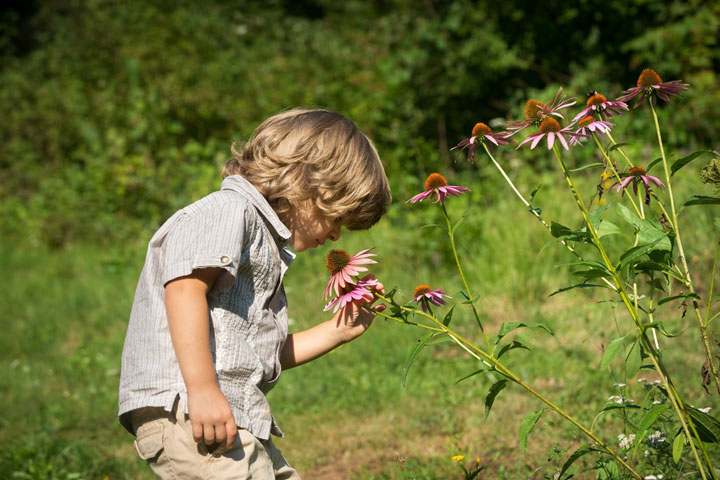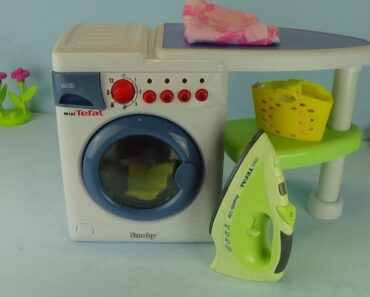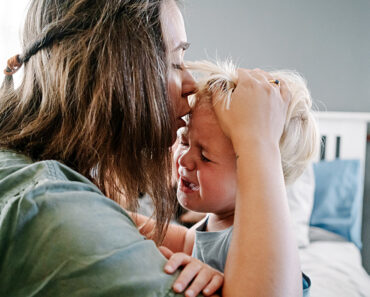Shutterstock
Echinacea, also known as purple coneflower, refers to a group of flowering plants (Echinacea purpurea, Echinacea angustifolia, and Echinacea pallida) native to North America. Evidence shows that this medicinal plant has been in use for treating ailments such as wounds and infections for the past 400 years.
Echinacea’s use as a herbal remedy for the common cold, flu, fever, and upper respiratory infections in children has become increasingly popular. If you are contemplating using echinacea to treat an ailment or boost your child’s general health, you might want to know about its safety and efficacy for children first.
This post shares the safety profile of echinacea for kids, including its age-appropriate dosage and potential benefits and side effects.
Is Echinacea Safe For Children?
Guided use of echinacea is considered safe for children aged 12 years and above. However, its use in younger children is also prevalent in alternative medicine. If you want to try echinacea for your child, consult a pediatrician or alternative medicine expert. An expert can guide you about the safety of echinacea for your child based on their age, medical history, medication details, and overall health.
Additionally, they will suggest an age-appropriate dosage based on the intent of use. Echinacea is available in different forms, such as extracts (alcoholic, water, or oil), chewable tablets, tea, pills/capsules, gummies, and fresh/dried powder. Thus, discuss the best option for your child with your doctor.
Safe Dosage For Children
The use of echinacea as a dietary supplement or herbal medicine isn’t well-regulated, as dietary supplements and herbal medicines do not undergo the US FDA’s safety regulation checks. Therefore, their safety and efficacy aren’t apparent. Besides, the right dosage of echinacea for children depends on the child’s age, weight, medical condition, type of echinacea product, and mode of use, that is, oral or topical.
All these factors make selecting and administering echinacea to children tricky. Hence, you should follow the dosage as recommended on the package. Alternatively, you may consult an expert who could recommend a safe dosage for your child’s condition.
Uses Of Echinacea For Children
The roots and herbs of the echinacea plant contain bioactive compounds, such as alkamides, caffeic acid derivatives, polysaccharides, and glycoproteins. These compounds confer antioxidant, antibacterial, antiviral, anti-inflammatory, and immunomodulatory properties to echinacea.
Here’s a brief overview of the uses of Echinacea for children.
- Common cold: Herbal preparation of Echinacea is proven to improve the common cold symptoms in adults; however, it is found ineffective in children. A 2011 literature review concludes that Echinacea purpurea taken at the first signs of cold might reduce the duration and severity of symptoms. In another study, it was found that certain Echinacea products might help relieve cold. But majorly, the clinical trials and research offer mixed results.
- Ear infections: Recurrent otitis media (middle ear infection) is common in young children. Alternative medicine experts and herbalists recommend using echinacea to treat and manage ear infections. However, a 2008 randomized-controlled trial shows that treating otitis media with echinacea product might increase the risk of its recurrence.
- Skin issues: Research shows that echinacea can help treat acne. Herbal echinacea extract possesses antibacterial and anti-inflammatory properties, which help inhibit the bacteria (Propionibacterium) growth and reverse the inflammation caused by the bacteria. Besides, the topical use of Echinacea is also known to treat wounds, ulcers, cold sores, insect bites, eczema, and allergies.
- Immunity: Several parents use echinacea to boost their children’s immunity. A 2007 research study suggests echinacea can affect one’s innate and adaptive immunity. However, how much effect an echinacea product will have on one’s immunity depends on the species of echinacea used for making the product, the plant part used, and the extraction method as highlighted by research and clinical trials.
Possible Side Effects Of Echinacea
Generally, echinacea is well tolerated in adults. However, it may cause the following side effects in children.
- Abdominal pain, diarrhea, and vomiting
- Fever and chills
- Unpleasant taste in the mouth
- Temporary tingling and numbing of the mouth
- Insomnia
- Skin rash and allergic reactions, especially if the child is allergic to daisy family plants, such as marigold and ragweed
Using Echinacea topically may cause red itchy rashes on the child’s skin, most likely due to an allergic reaction.
Precautions To Take When Using Echinacea For Children
Here are some simple precautions that you should observe when using echinacea for your child.
- Consult a pediatrician or alternative medicine expert before using echinacea for your child regardless of the ailment. Also, share your child’s medical history, such as an allergy, and details of medications they take.
- Buy an echinacea product from a reputable and trustworthy manufacturer and seller. Before buying, take some suggestions from your healthcare provider. It will help ensure that the product you buy is contamination-free.
- Select a product that has USP written after the product name. It indicates that the product has been manufactured as per the recommendations set forth by the US Pharmacopeia. Also, choose an alcohol-free echinacea product for your child.
- Read the product label carefully while purchasing an echinacea product. The label should tell you about the active and inactive ingredients, such as vitamins, minerals, or sugar, in the product.
- Follow the dosages as directed by the doctor and administer them carefully. Store the echinacea products away from children to prevent accidental ingestion.
- Inform the child not to take caffeine or caffeinated beverages, such as energy drinks or cola, with echinacea, as it can increase the caffeine’s side effects, such as rapid heart rate and headache.
Echinacea should never be administered to immunocompromised children, children with an autoimmune disorder, or those who have any liver disorder.
Echinacea is a medicinal plant that has been a common part of traditional and herbal medicine for ages. However, most of its uses are backed by anecdotal evidence. Research studies and clinical trials are still underway to prove the safety and efficacy of echinacea in children. Yet, if you want to use echinacea for your child, do so after consulting an expert.
References:


































